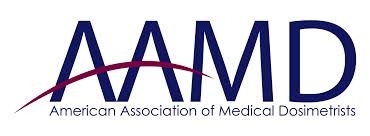The Medical Dosimetry graduate program at Grand Valley is designed to give the student wishing to become a medical dosimetrist and earn a M.S. degree the opportunity to use some of the most cutting edge technology in the field. The curriculum is a research-based graduate program that prepares dosimetrists to be leaders in the field of medical dosimetry and radiation oncology.
Watch the Video to Learn More about Dosimetry
Watch the Video to See What Makes GVSU's Program Unique
Listen to the Podcast
CAREER OUTLOOK AND OPPORTUNITIES
According to Payscale.com, dosimetrists' salaries ranged between $73,541-$127,884 a year as of 2018. Employment in radiation treatment positions was projected to grow 14% between 2014 and 2024, a rate that's faster than average, due to a growing elderly population, falling costs, and improved treatment effectiveness. GVSU medical dosimetry graduates become dosimetrists and work in the following fields:
- Education
- Management
- Medical sales
- Patient care
- Technical training
Why Study Medical Dosimetry at Grand Valley?
Experience. Includes clinical experience performing treatment planning activities in radiation oncology centers.
In-demand. Advances in treatment planning combined with increases in radiation oncology centers has increased the demand for certified medical dosimetrists.
Flexible. Available as a 3 term lockstep cohort program for full time students or 5 to 6 terms for part time students. The program is a hybrid/online format to encourage working professionals to engage with this program.
Convenient. Clinical education courses are held at clinical radiation oncology centers and courses are online, with one on-site meeting at the Cook-DeVos Center for Health Sciences in downtown Grand Rapids.
Accreditation
The GVSU Medical Dosimetry program is accredited by the Joint Review Committee on Education in Radiologic Technology (JRCERT). The program was accredited for the maximum period of eight years, the next site visit is tentatively scheduled for the Third Quarter of 2027. The program will adhere to JRCERT standards.
Students have the right to notify the JRCERT if they believe the university is not adhering to these standards. The JRCERT is at 20 N. Wacker Dr., Suite 2850, Chicago, IL 60606-3182, phone 312-704-5300 (www.jrcert.org).
Program Effectiveness Data
Program effectiveness data can be found here, which includes the program's credentialing examination rate (MDCB board pass rates), job placement and program completion rates. The JRCERT also publishes this data: https://www.jrcert.org/programs/grand-valley-state-university/.
Mission, Goals and Outcomes
|
Mission Statement |
|---|
|
The program’s mission is to provide graduates with the knowledge, clinical skills, and professional behaviors for a career in Medical Dosimetry. |
|
PROGRAM GOALS |
|---|
|
Upon completion of the program students will be able to:
|
|
STUDENT LEARNING OBJECTIVES |
|---|
|
Students will apply didactic knowledge to treatment plans. Students will generate clinically acceptable IMRT/VMAT treatment plans. Students will communicate effectively with healthcare staff. Students will communicate effectively through written work. Students will evaluate, critique, and recommend changes to the radiation therapy plan as necessary. Students will participate in the development of optimal treatment strategies. Students will demonstrate professional behavior in the clinic. Students will engage in the medical dosimetry profession. |
Courses Offered
The Masters of Science in Medical Dosimetry program is 38-credits. The curriculum meets the requirements prescribed by the American Association of Medical Dosimetrists, so that successfully completing the 38-credit hour didactic and clinical curriculum qualifies graduates to be eligible to sit for the MDCB examination and become a Certified Medical Dosimetrist (CMD). Students study a variety of topics that include:
- Computer technology
- Clinical disease processes
- Human anatomy
- Radiation physics
Visit the online catalog for course offerings and degree requirements.
Admissions
Masters of Science in Medical Dosimetry application deadline is February 1st, though applications may be accepted after this date. The $30 application fee is waived if you’ve already applied to Grand Valley. Visit the online catalog to view admission requirements for this program.
ARE YOU A GVSU ALUM?
When you became a Laker, you opened up a lifetime of learning, and now alumni like you can use your Laker Lifetime Learning (L3) account for classes that provide greater knowledge and new skills. Your account is waiting for you to use for future classes at GVSU. All you have to do is click on the button below to find out more.
Find Out More About Your Laker Lifetime Learning Account (L3)
Cost
For more information on tuition and fees, please visit the costs portion of the GVSU Financial Aid website. For financial support, scholarship search, and filing for FAFSA, please visit the GVSU Financial Support website.
Note: Grand Valley does not charge a higher tuition rate based on residency. Tuition is based on the program in which you chose to enroll.
Related Programs
The following programs are similar to this one:
Use our program comparison tool to find programs that are similar to this one at GVSU.



[1602508046].jpg)
